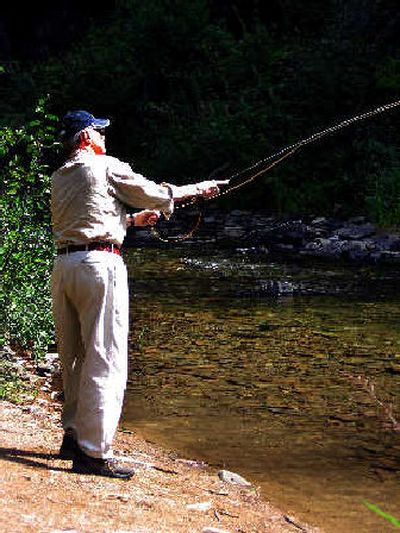Virginia senator spent time as ‘ribes goon’ in Idaho forests

The senior senator from Virginia, John W. Warner Jr., served as a sailor and Marine in World War II and Korea, was Secretary of the Navy, coordinated the U.S. bicentennial celebration, is chairman of the Senate Armed Services Committee and serves on other committees related to the environment, public works, homeland security and intelligence.
He also was once married to movie star Elizabeth Taylor, and he worked in the forests of North Idaho 62 years ago as a “ribes goon.”
Ribes (pronounced rye-bees) are currants and gooseberries. They’re host to white pine blister rust, a disease that attacks one of our prettiest and most valuable conifers.
From 1916 into the 1960s, the U.S. Forest Service conducted an extensive and expensive campaign to save the Western white pine by eradicating the host plants.
Over those years, the agency hired thousands of young men who other woods workers tagged with the “goon” nickname. They wandered through the forest digging up the berry plants. The program wasn’t too successful in terms of eradicating blister rust, but it did toughen up legions of youngsters and helped finance the education of many.
During a recent visit to his old North Idaho haunts, Warner recalled his previous visit.
He was 16 when he arrived here in the summer of 1943. World War II was raging, and the Forest Service bent its rule that had prohibited hiring persons under 18. Furthermore, his father, a World War I veteran, told the young Warner that he’d better toughen up, for it was inevitable he’d end up in one of the armed services.
“Dad said he’d pay my one-way fare from Virginia, but I’d have to earn enough money to get back home,” Warner remembers. “So I came out to Coeur d’Alene by train with two friends.”
After outfitting themselves with calked boots and “tin” (waterproof) pants in town, they were trucked to the Jordan Blister Rust Control Camp. That was up the North Fork of the Coeur d’Alene River between the Forest Service’s Shoshone Work Center and its Magee Ranger Station.
“We were backfilling for the CCC boys,” Warner explains.
That New Deal program – the Civilian Conservation Corps – had put thousands of young men to work in the woods during the Great Depression, but it was abolished when the war began and most of the same youngsters took up arms.
“Old loggers ran our camp,” Warner recalls. “Some of them had been tree toppers, and their biceps were as big around as most folks’ thighs.”
He didn’t spend his whole summer hacking ribes. He recalls working 24 hours straight pulling on a crosscut saw and hacking with a pulaski as he and his fellow crewmen beat down a forest fire.
“It was an exciting chapter in my life,” he says. “I’m sure it helped mature me.”
Warner’s recent visit here was prompted by his desire to write his memoirs for his family.
He didn’t find much at his old Jordan Camp, just a couple of concrete foundations, one of which he thinks might have been the mess hall. A nearby creek brought back memories of brushing his teeth and bathing in its chilly waters.
He also told Ranger Randy Swick of wrapping his hands with burlap bags for boxing matches with other young workers.
Warner earned enough that summer to at least pay his fare back home, he says, and his Western woods experience was so enjoyable, he returned.
Following his Navy hitch in 1945 and 1946, he signed on for more blister rust control work. During the summer of 1947 he was assigned to a camp near Orofino, where he was a crew boss.
To get to work that time, the young vet hitchhiked across country with a buddy. “But we made enough money to buy a Model A to drive home in,” he recalls. “And we sold it for $150 more than we’d bought it for.”
And what does he remember most about his Idaho experiences?
“The beautiful country and the warm people. We were really treated well.”